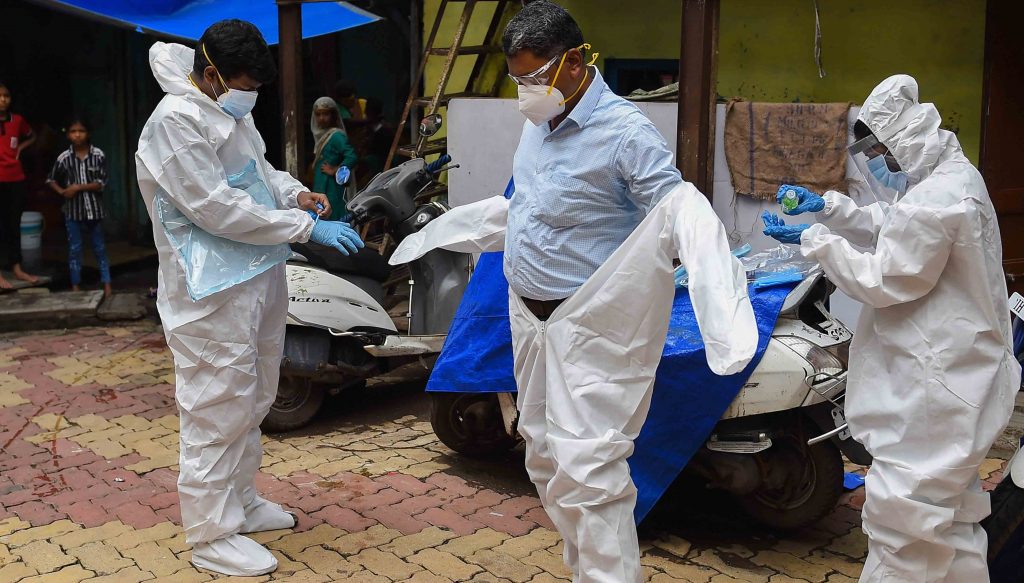London: There is a lot of research going on for the COVID-19 virus. Among the topics being looked into is the effect of COVID-19 on various types of patients. Also the world is working round the clock to find a vaccine to tackle the COVID-19 virus. Here is a roundup of some of the latest scientific studies on the novel coronavirus.
Mild COVID-19 induces prolonged immune response
In patients with mild COVID-19, immune responses last months and possibly longer, researchers found. Early reports suggested that in mildly ill patients, antibodies decrease and immunity wanes soon after recovery. But a study from China last month on 349 COVID-19 patients found similar immune response patterns at six months regardless of symptom severity. The study though has not undergone peer review.
In another study published Saturday ahead of peer review, US researchers performed blood tests in 15 patients after mild COVID-19 attack. They looked for three signs of lasting immune responses: antibodies, memory ‘B cells’, and memory ‘T cells’. Three months after recovery, patients still had ‘all three of these defense layers’. This reduced their risk of re-infection, study co-author Lauren Rodda of the University of the Washington School of Medicine said.
COVID-19 survivors at risk for psychiatric disorders
A study of more than 62,000 COVID-19 survivors has found significant risks for mental health issues. Researchers found that one in 16 COVID-19 patients who never had a mental illness will be diagnosed with one. This will happen within three months after infection. This risk is about twice as high as expected and is even higher among patients who were sick enough to be hospitalised, study leader Maxime Taquet of the Oxford University said.
Also read: Odisha to roll out plasma therapy to treat COVID-19 patients
Most common are anxiety disorders, but depression, insomnia, and rarely, dementia, also occur, he said. Taquet’s advice for patients is: “If you experience anxiety, low mood, insomnia or memory loss after COVID-19, you should see a medical professional immediately.
Viral load not linked with smell or taste recovery
Virus levels in the nose and throat have been linked to COVID-19 symptom severity. However, Hong Kong-based researchers who expected viral load to correlate with smell and taste impairment were in for a surprise. They found that the viral load was not linked to the severity of these so-called olfactory and gustatory symptoms.
Also the viral load does not determine how long it takes for the sense of smell or taste to return to normal. The findings were reported in the journal ‘Laryngoscope’. The findings were based on data from 39 patients in Hong Kong who developed problems smelling or tasting – or both. On average, it took 10 days for these senses to return. Four to six weeks after becoming ill, 72 per cent had completely recovered the ability to smell and 83% were able to taste again.
Early use of antibody-rich convalescent plasma may be best
Treating seriously ill COVID-19 patients with antibody-rich blood plasma from people who have recovered from the disease can lower fatality rate. This is a finding from the new data from a nationwide US study. It may help fine-tune the use of this so-called convalescent plasma.
The study was conducted at 2,807 US hospitals between April 4 and July 4. More than 35,000 patients with, or at risk of, life-threatening COVID-19 respiratory problems received a transfusion of at least one unit of COVID-19 convalescent plasma. Roughly half the patients were in intensive care units. Another one-quarter needed mechanical ventilators. Mortality rates were lower when plasma was given within three days of diagnosis, the researchers found.
In a report posted ahead of peer review on ‘medRxiv’, the research team announced the facts. It concluded that while the study was not a gold-standard randomized trial, the findings added to evidence that ‘the quality and manner in which convalescent plasma is administered to patients hospitalised with COVID-19 may reduce mortality’.
